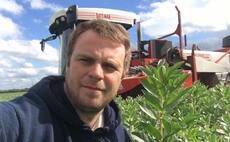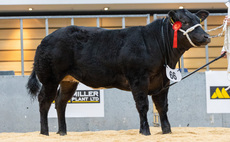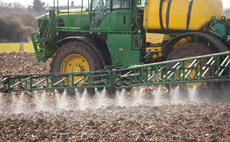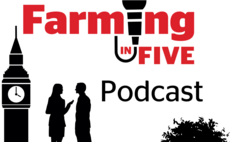
Industry experts from across the farming sector have been sharing their initial reaction and thoughts following the Chancellor's Budget, as they start to unpick what the changes to Inheritance Tax (IHT) reliefs mean for the farming sector.
Autumn Budget
Robert Sullivan, head of farm business at GSC Grays, a firm of chartered surveyors and land agents said the Chancellor's announcement of changes to the IHT regime has given land and business owners ‘a lot to think about'.
Looking at Inheritance Tax first he said the fact Agricultural Property Relief (APR) AND Business Property Relief (BPR) remain in place at all was ‘a plus', compared to ‘some of the worst-case scenario predictions'.
READ NOW: Defra's £2.4bn Agriculture Budget at a 'tipping point'
Agricultural Property Relief
"But there is no denying that this is going to mean fundamental changes to the succession plans of both farmers and business owners. Despite the government's assertion that very few estates will be affected, that is cold comfort given how important APR is to the farming sector," said Mr Sullivan.
After April 2026, he said farmers will not be able to assume that the entire farm can be passed on free of inheritance tax.
READ NOW: Autumn Budget: Farming, have your say and tell us what you think
"The headline appears to be that landowners and business owners should assume that, aside from the unchanged Nil Rate and Main Residence Nil Rate bands, only £1m of assets qualifying for APR and BPR (combined, not £1m under each relief) will obtain 100% relief. After that, IHT will be payable on 50% of the value, meaning that the effective rate of tax will be 20% (40% tax on 50% of the asset value).
"The detailed guidance released so far leaves questions unanswered, so it will be a case of awaiting more detail. The Chancellor did confirm that the previous Government's promise to extend APR to land managed under an environmental agreement will be honoured, effective from April 2025."
Capital Gains Tax
On Capital Gains Tax, he said rates will ‘rise on disposals with and without the benefit of Business Asset Disposal Relief.'
"In terms of what that means, much will depend on the detail as it emerges, but there will be interesting and perhaps far-reaching consequences.
"For some businesses there will be little to no scope for taking action now without letting the tax tail wag the dog, and some might take the view that the Conservative party could return to power and reverse of soften the limits on relief before any tax event occurs.
'Window of opportunity'
"Other businesses will need to think carefully and fast, as there is a window of opportunity between now and April 2026 to take advantage of the current regime."
He said looking more generally, he expected ‘several key areas to come under consideration.'
READ NOW: Autumn Budget: APR overhaul garners furious response from farming industry
Land prices
"The size, structure and asset base of businesses will be as relevant as before, if not more so, given the £1m threshold for relief. Land occupation patterns could change given the tax advantage of APR over BPR appears to have been closed. Íæż½ã½ã will now have to think even harder than before about retiring from their own business and letting their land, since IHT relief on that land will now be restricted."
When it comes to land prices he said the impact will hinge on two factors.
"The first is whether buyers who previously prized 100% APR will find the low returns on investment unpalatable in the light of the reduced relief and start to exit the sector.
READ NOW: Farming support available after Budget announcement
"The second is whether supply increases as the attraction of retaining land in retirement lessens. One significant plus for land values is that there appears to be no removal of holdover or rollover relief, keeping those purchasers in the market.
Supply of let land
"For the let sector, the supply of let land may increase, with the advantage of farming in hand now much diminished in many cases. Whether that translates to excess supply putting downward pressure on rents is a very different question, given how influential farm profitability has become on tendered rents."
Succession planning
Listen now:
Partner at HCR Law, Lisa Millington said the changes to APR and BPR announced by Rachel Reeves yesterday could ‘prompt farmers to bring forward succession plans' before the changes take effect in April 2026.
"However, the changes to Capital Gains Tax (CGT) rates mean it is not quite as simple as that. When gifting an asset (such as property or shares), it's treated as if you sold it, for tax purposes. So, you may still owe CGT on any increase in the asset's value, even though you did not get any money from the transfer.
READ NOW: Kaleb Cooper releases new book to show public farming is 'way of life'
"This tax is often called a ‘dry' tax charge because there's no cash from the gift to cover the tax bill. Previously, this tax was 20%, but it's now been raised to 24%," Ms Millington said.
Next generation
She said while holdover relief remains untouched, Business Asset Disposal Relief, often used by farmers to pass down their farming business to the next generation tax efficiently, will become 'less generous from April 2025.'
"Therefore, it is s not just the IHT changes that will make it harder to keep farming in the family. Is the solution to sell up? Unlikely – CGT applies to sales and any leftover proceeds could still be subject to IHT when you die," Ms Millington said.









![Letters: "The bandwagon of vindictive socialism [against farming] rolls on"](https://image.chitra.live/api/v1/wps/bf7bd45/ed005a6b-6c90-4198-85d1-e0d126f75bf8/3/Steve-Reed-OFC-2025-323x202.jpg)













![Letters: "The bandwagon of vindictive socialism [against farming] rolls on"](https://image.chitra.live/api/v1/wps/d716150/ed005a6b-6c90-4198-85d1-e0d126f75bf8/3/Steve-Reed-OFC-2025-230x142.jpg)

